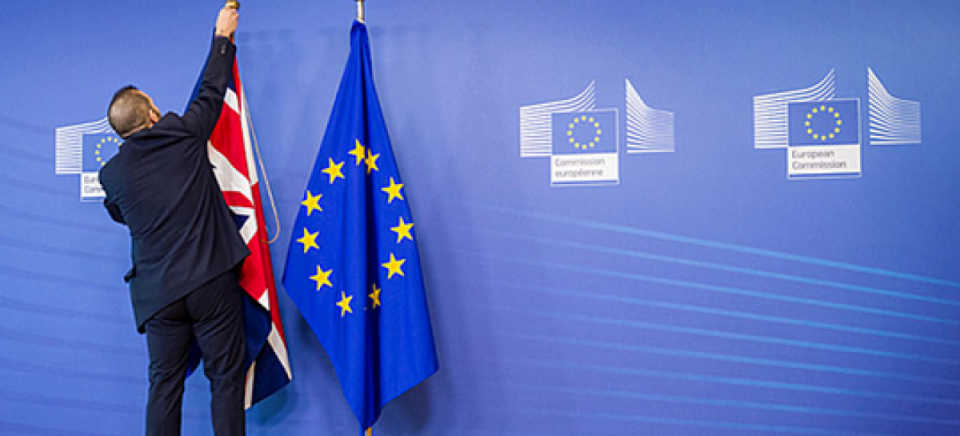Under-pressure Conservative Prime Minister Theresa May met opposition Labour leader Jeremy Corbyn on Wednesday as she sought a last-minute consensus that would allow Britain’s orderly withdrawal from the European Union.
“The purpose of meeting the leader of the opposition today is to look at the areas on which we agree,” May told the Commons, parliament’s elected main house, before the talks.
She said they agreed on leaving the EU with a deal that can protect jobs and ensure the end of the free movement of EU citizens to Britain.
“We want to find a way forward that can command the support of this house, to deliver on Brexit and the result of the referendum, and to ensure that people can continue to have trust in their politicians doing what they ask us to do,” May said.
The talks took place as parliament debated a business motion that would allow cross-party, pro-EU lawmakers to table a bill to legislate against Britain leaving the EU without a deal on April 12.
European Commission President Jean-Claude Juncker earlier reiterated the EU’s position that Britain should get a Brexit deadline extension to May 22 if May can persuade lawmakers to approve the withdrawal agreement in the next few days.
May said late Tuesday that she plans to ask Brussels for a further Brexit extension as she tries to avoid a no-deal outcome.
“If the United Kingdom is in a position to approve the withdrawal agreement with a sustainable majority by April 12, the EU should likewise in this case accept a delay until May 22,” said Juncker.
But if the deal falls again, “no further short extension will be possible,” he warned, citing the risk of jeopardizing the European Parliament elections in late May.
Those cut-offs are what EU leaders and May agreed to at the last EU summit, two weeks ago, but British lawmakers remain deadlocked and have not been able to agree on an endgame.
Referencing that impasse, Juncker said that a “no-deal” scenario of Britain crashing out the bloc is now “very likely.”
Still, the EU “will not kick any member state out,” he said, adding, “I will personally do everything I can to prevent a disorderly Brexit.”
EU leaders are meeting at an emergency summit on April 10 and appear divided over whether they should offer May any more help.
Irish Foreign Minister Simon Coveney was more positive than Juncker, telling national broadcaster RTE that his government was likely to support May’s request for another extension.
“It is very unlikely that there will be any crash-out at the end of next week, with the prime minister looking for an extension [and] with a plan to go with that,” Coveney said.
British media reported strong dissent in a marathon cabinet meeting that preceded May’s announcement late Tuesday of her new plan, while many eurosceptic Conservatives voiced their opposition to the plan on social media.
The Telegraph said 14 mainly pro-Brexit ministers opposed her in the meeting.
Asked about the report, May said the cabinet had reached a “collective decision” on the way forward.




Comments are closed for this post.